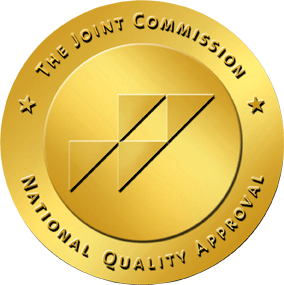Finding the right path to recovery from substance use can feel overwhelming. Many individuals in Miami and across Florida face barriers such as stigma, transportation, or financial challenges when seeking help. At Improving Lives CMHC, we believe recovery should be accessible, compassionate, and personalized. That’s why our substance abuse counseling in Miami and IOP program in Miami provide flexible, structured care that meets people where they are—whether in-person in Miami-Dade or via telehealth statewide.
What Is Substance Abuse Counseling?
Substance abuse counseling is a type of therapy that helps individuals address the emotional, behavioral, and social challenges tied to substance use. It goes beyond simply stopping use—it supports lasting recovery by teaching coping skills, uncovering triggers, and building healthier habits.
At Improving Lives CMHC, we offer both Individual Substance Abuse Counseling and Substance Abuse Group Therapy.
- Individual counseling allows for one-on-one support tailored to personal goals.
- Group therapy provides connection, accountability, and shared experiences that remind clients they are not alone.
Together, these approaches create a balanced foundation for recovery.
Understanding IOP in Miami
An Intensive Outpatient Program (IOP) offers structured treatment without requiring an overnight stay. For many, this makes recovery possible while continuing work, school, or family responsibilities.
At Improving Lives CMHC, our IOP program in Miami includes:
- Multiple weekly therapy sessions (individual, group, and family)
- Evidence-based therapies such as CBT and DBT
- Medication management, if needed
- Case management and wraparound support
- Transportation and meal services for local clients
- Flexible scheduling, including after-school and telehealth options
Our comprehensive care model ensures that you receive intensive treatment while staying engaged in your daily life, providing a sense of security and comfort during your recovery journey.
Benefits of IOP for Substance Use Recovery
For many individuals, IOP strikes the right balance between structure and flexibility. Some of the top benefits of IOP for substance use recovery include:
- Flexibility: Attend treatment while maintaining work, school, or family roles.
- Affordability: Our IOP program is covered by Medicaid, Medicare, and most commercial insurance, providing a cost-effective solution for your recovery journey.
- Supportive Community: Our group sessions create a sense of accountability and shared encouragement, reminding you that you are not alone in your recovery.
- Individual Attention: Unlike some centers that only offer group therapy, IL provides one-on-one counseling and family sessions.
- Step-Down Care: IOP can serve as a transition from inpatient rehab or a preventive alternative to hospitalization.
How Individual and Group Counseling Work Together

While individual substance abuse counseling helps clients dive deep into personal challenges, group therapy builds peer support. Both play a critical role in IOP.
For example:
- An individual session may focus on developing coping strategies for cravings.
- A group session may provide role-playing scenarios to practice those skills in a safe, supportive environment.
This combination ensures that recovery is both personal and social—a proven approach to long-term success.
The Miami Advantage: Local and Telehealth Support
Living in Miami-Dade means access to a vibrant, bilingual community and specialized care. Improving Lives CMHC stands out by offering:
- Bilingual providers (English and Spanish)
- Transportation and meals for in-person clients
- Telehealth services are available statewide in Florida for those unable to attend in person
- Broad insurance acceptance, including Medicaid and Medicare
This accessibility ensures that no one is left behind due to language, financial constraints, or logistical issues.
Why Choose Improving Lives CMHC for IOP?
Our team understands that substance use rarely exists alone. Many clients also face depression, anxiety, or trauma. At Improving Lives CMHC, our multidisciplinary team includes therapists, psychiatrists, and case managers who collaborate to address the whole person—not just symptoms.
Key reasons clients choose us:
- Personalized care plans tailored to each individual
- Integration of family therapy for stronger support systems
- Coordination with schools, workplaces, and community providers
- Empathetic, nonjudgmental staff who believe in second chances
Take the Next Step Toward Recovery
Substance use does not have to define your future. Whether you need substance abuse counseling in Miami or a structured IOP program in Miami, Improving Lives CMHC is here to walk beside you.
Call us today at (305) 230-8751 or schedule your consultation through our Contact page.
We accept Medicaid, Medicare, and most major insurance plans. Services are available in Miami-Dade and via telehealth throughout Florida.
Frequently Asked Questions
1. What’s the difference between IOP and inpatient rehab?
Inpatient rehab requires a 24/7 stay at a facility, while IOP allows clients to live at home and continue work or school. IOP is ideal for individuals who need structured care but not hospitalization.
2. How long does an IOP last?
Most IOP programs run for 8–12 weeks, though the length depends on individual needs. At Improving Lives CMHC, treatment plans are flexible and tailored to each client.
3. Does insurance cover IOP in Miami?
Yes. Improving Lives CMHC accepts Medicaid, Medicare, and most major commercial insurance plans. We also support HSA/FSA payments.
4. Can I attend IOP through telehealth?
Absolutely. We offer secure, HIPAA-compliant telehealth sessions statewide across Florida, making IOP accessible to those outside Miami-Dade.
5. What if I need more support than IOP?
For clients needing more intensive care, our Partial Hospitalization Program (PHP) provides a higher level of support while still allowing evenings at home.

